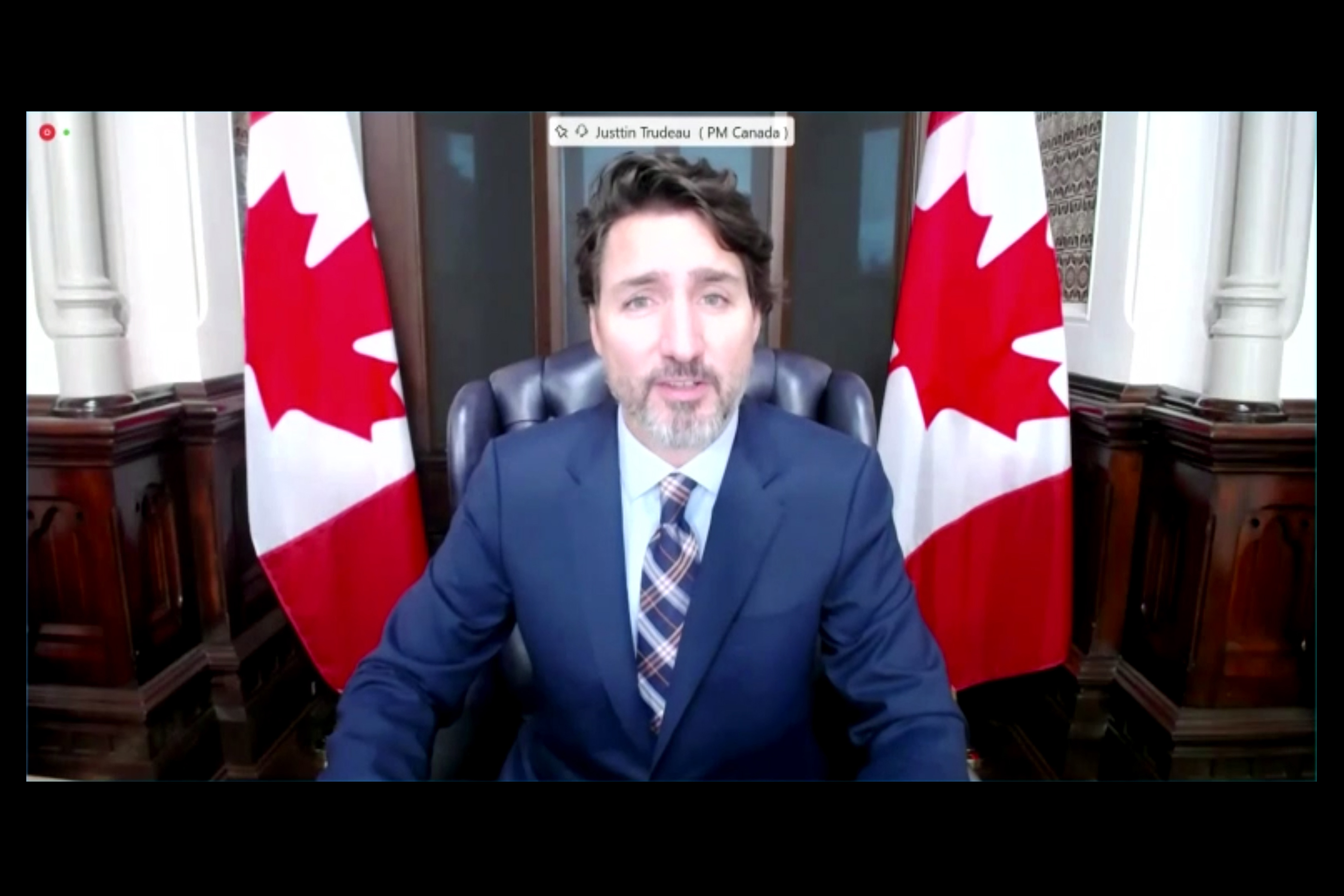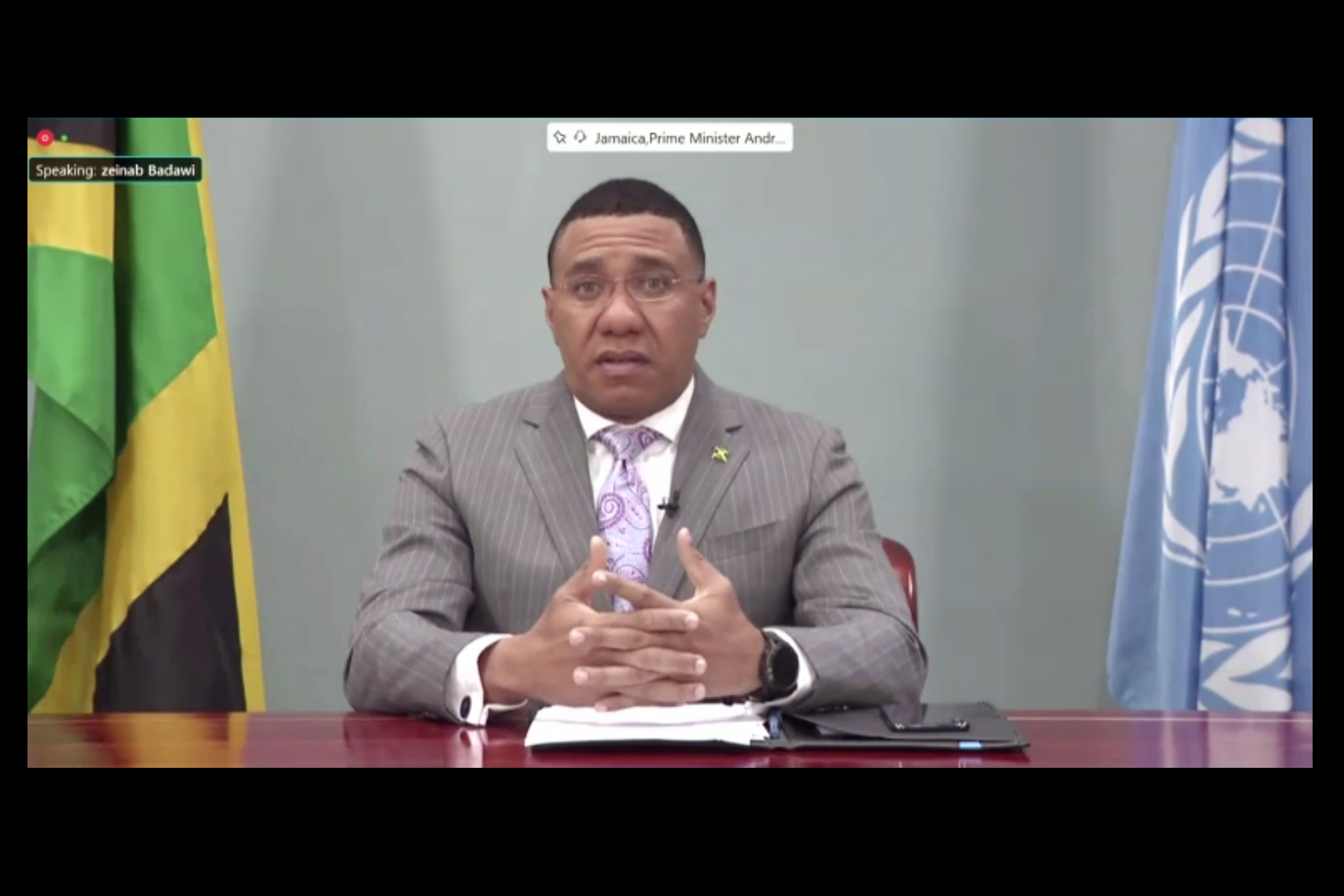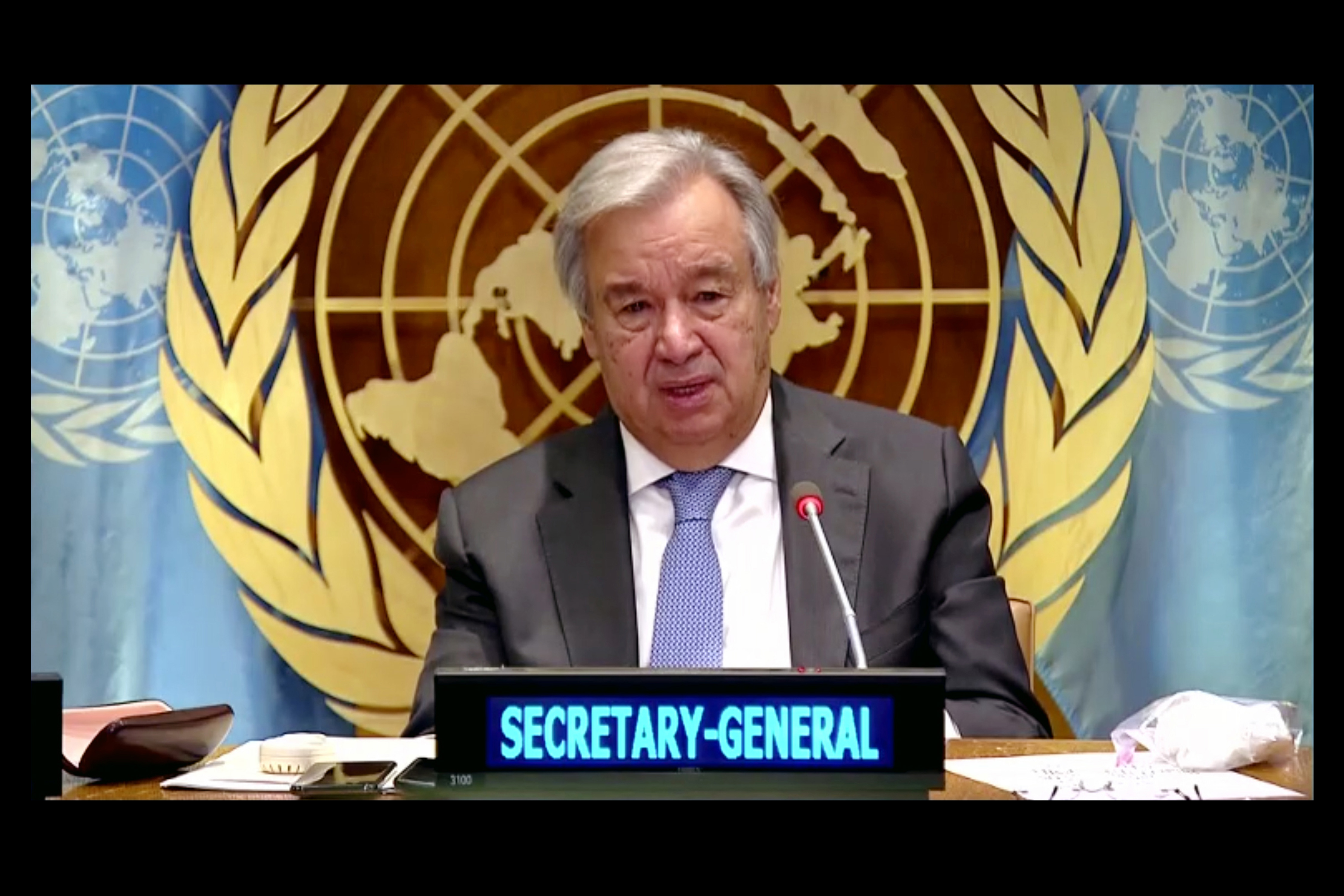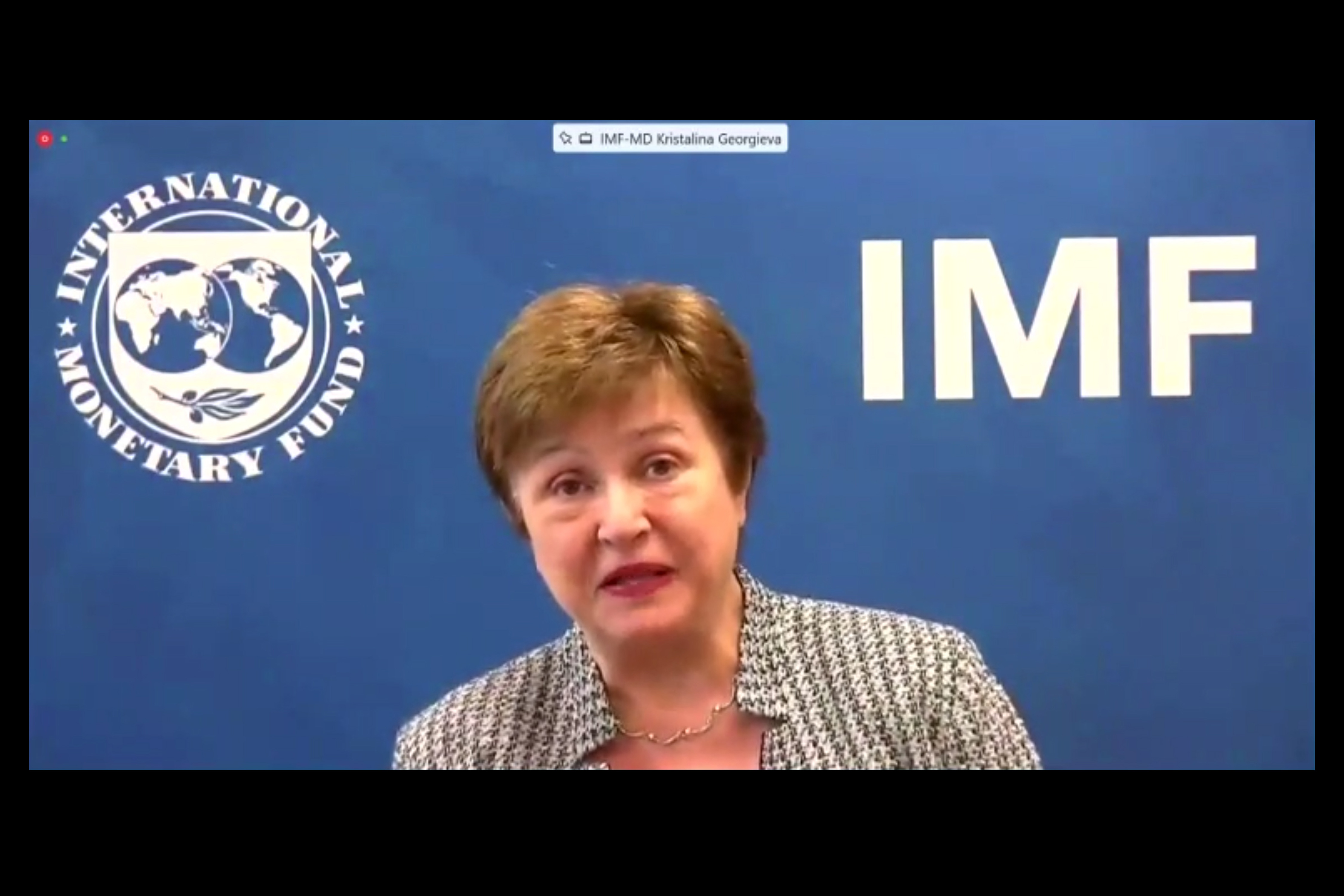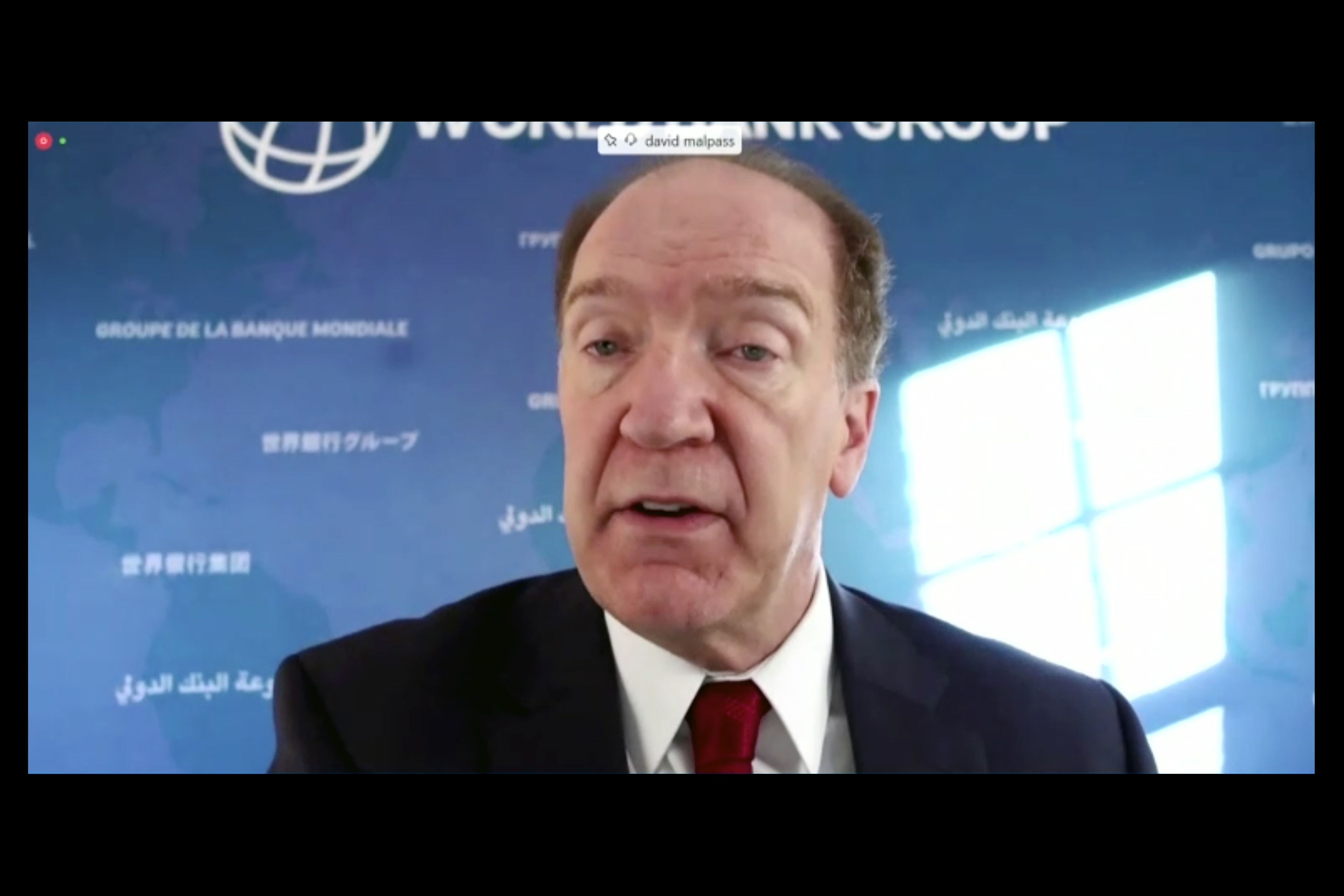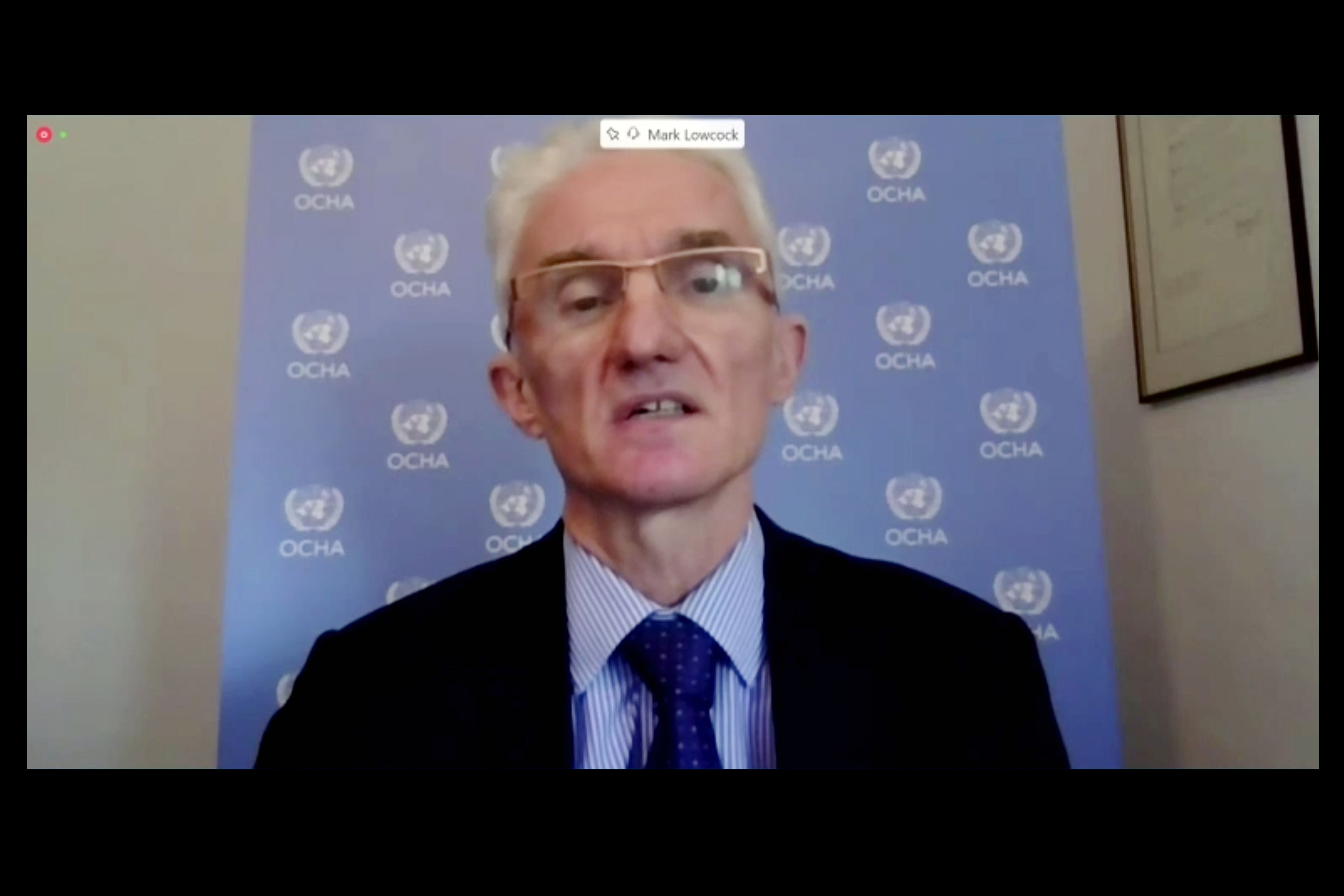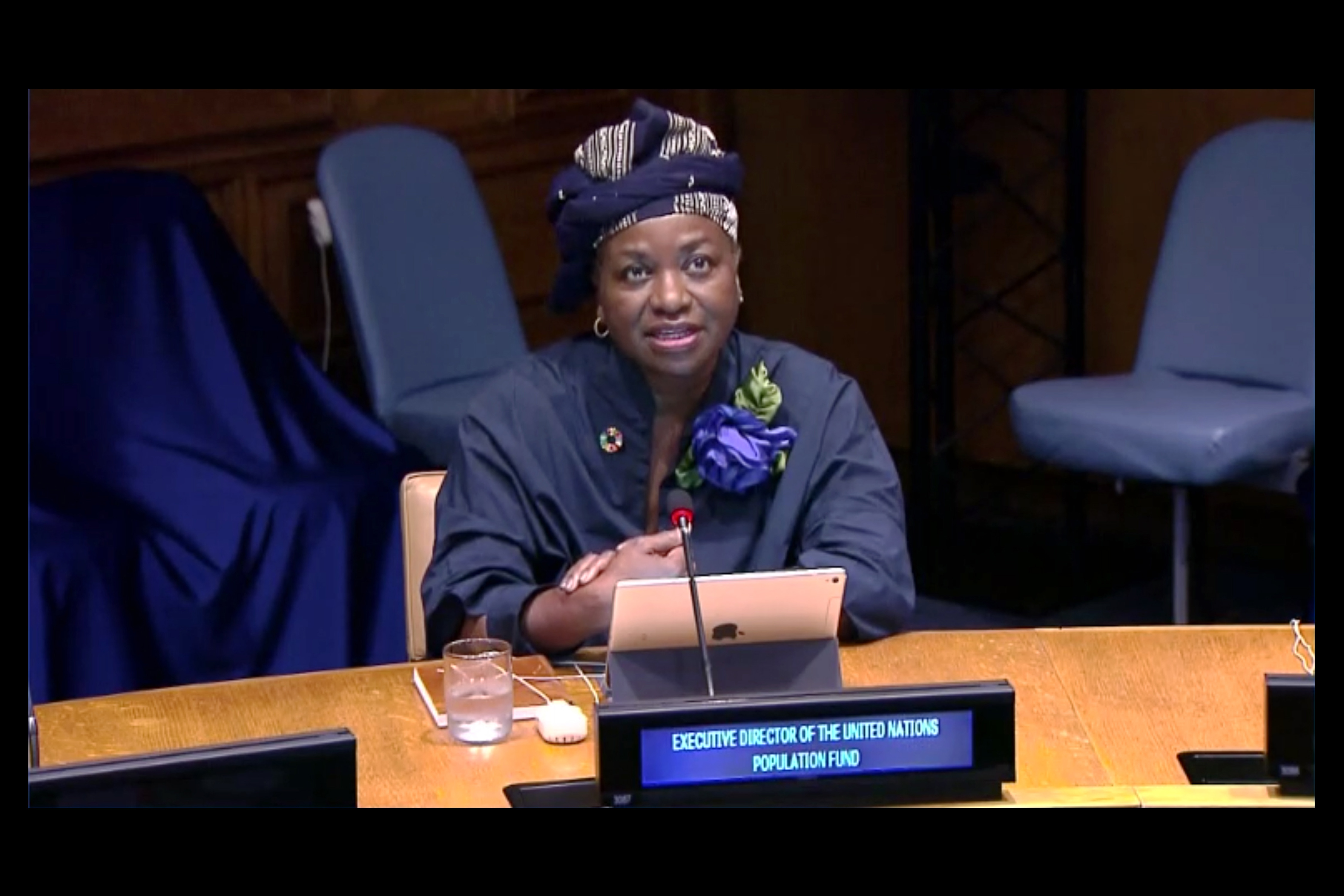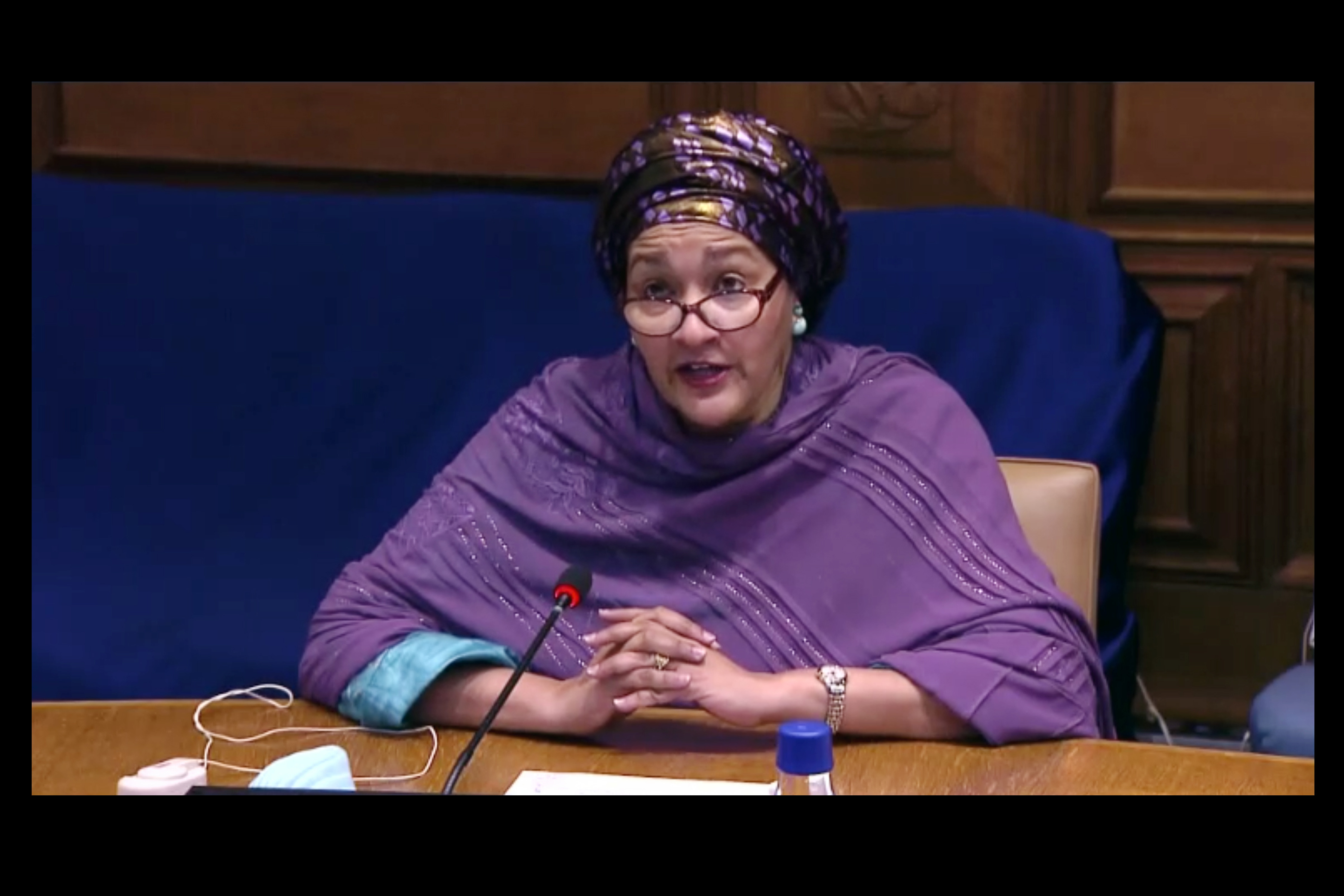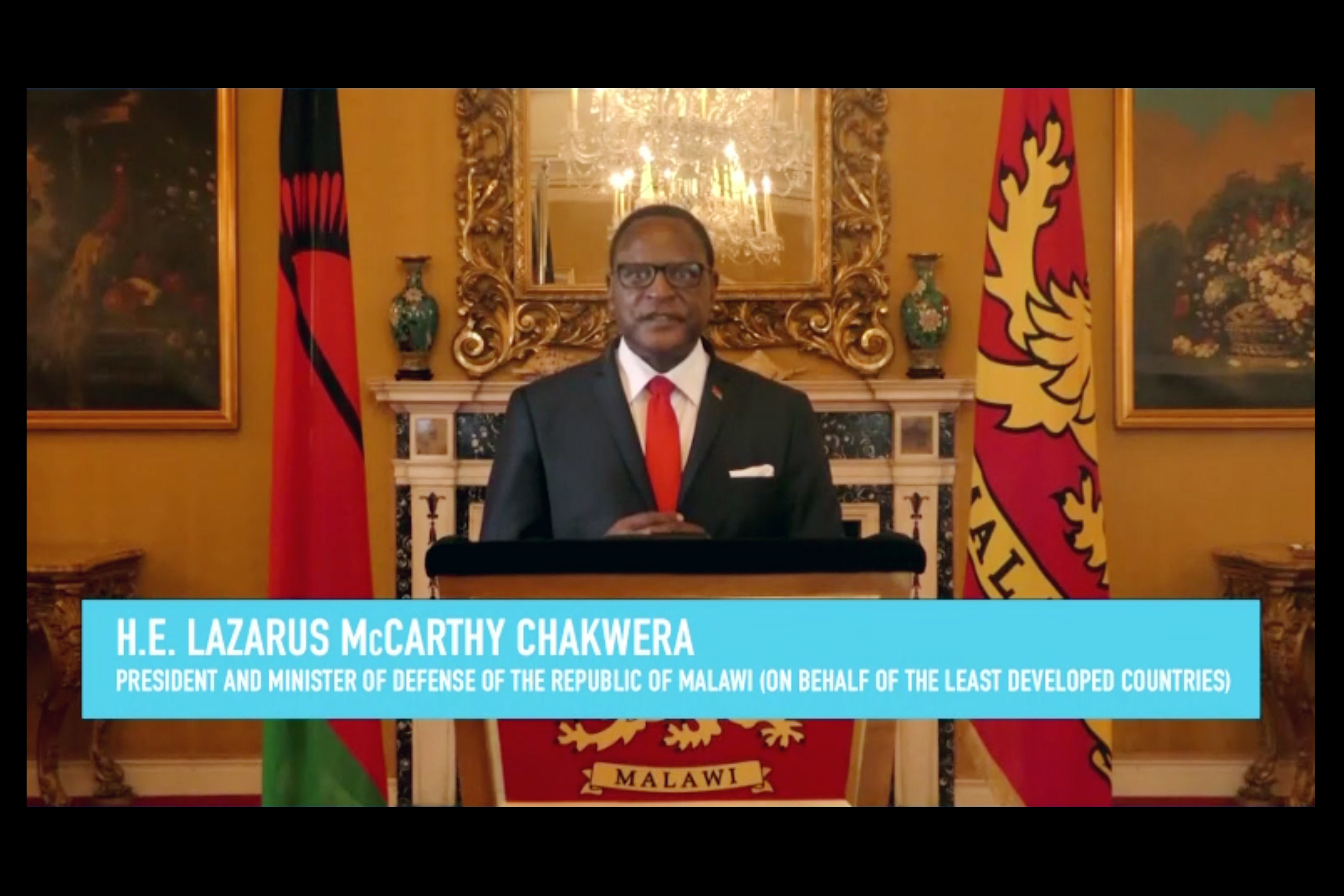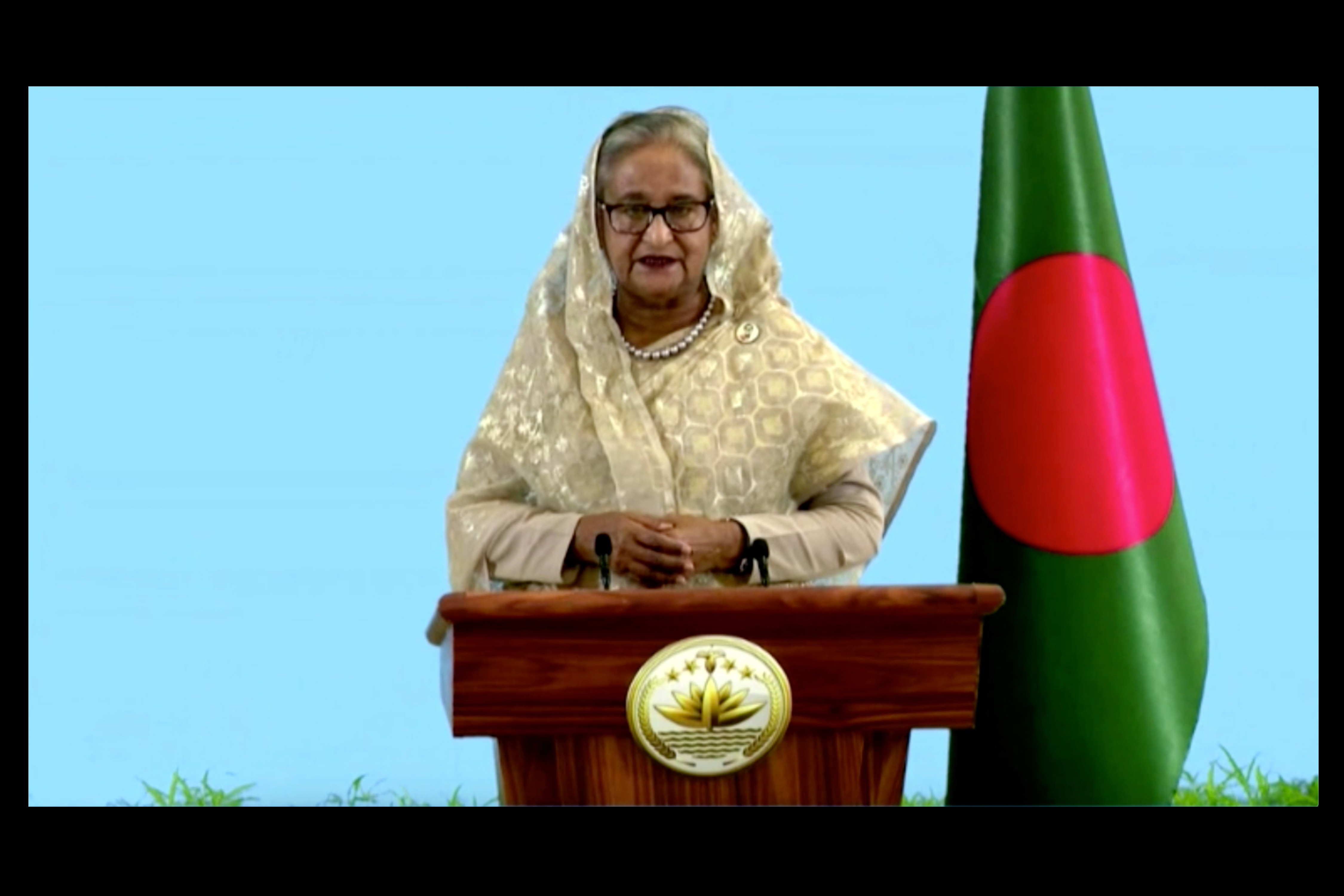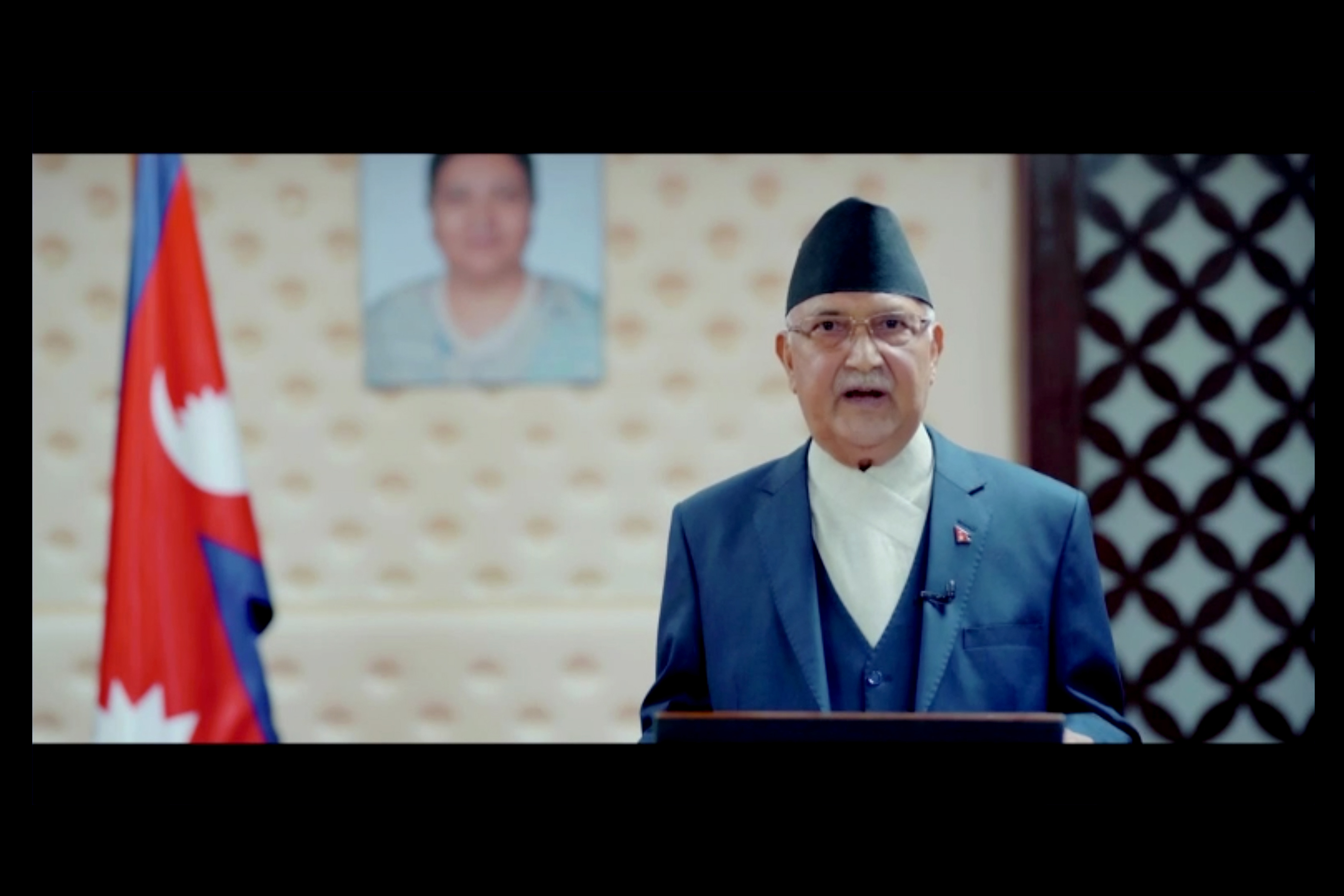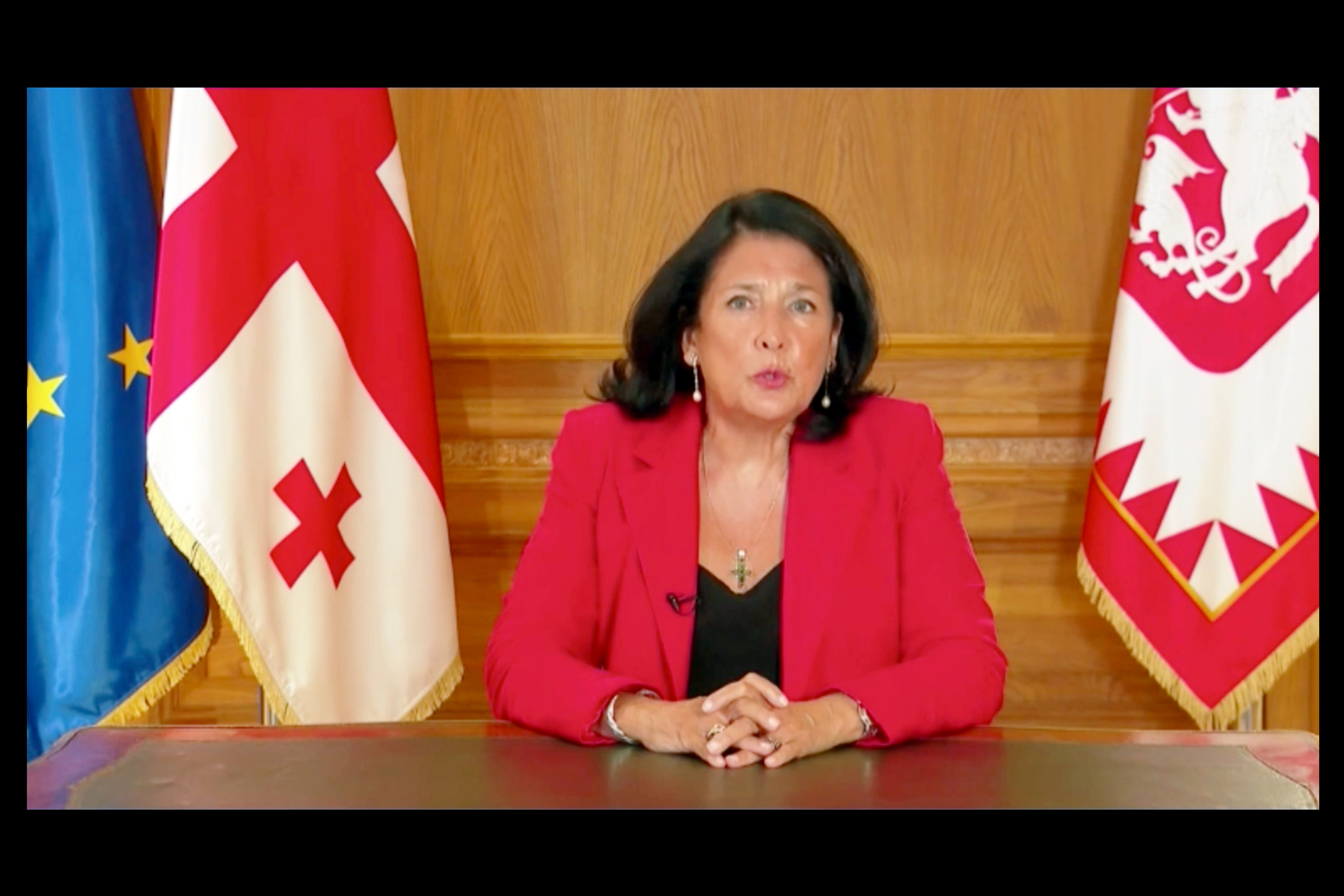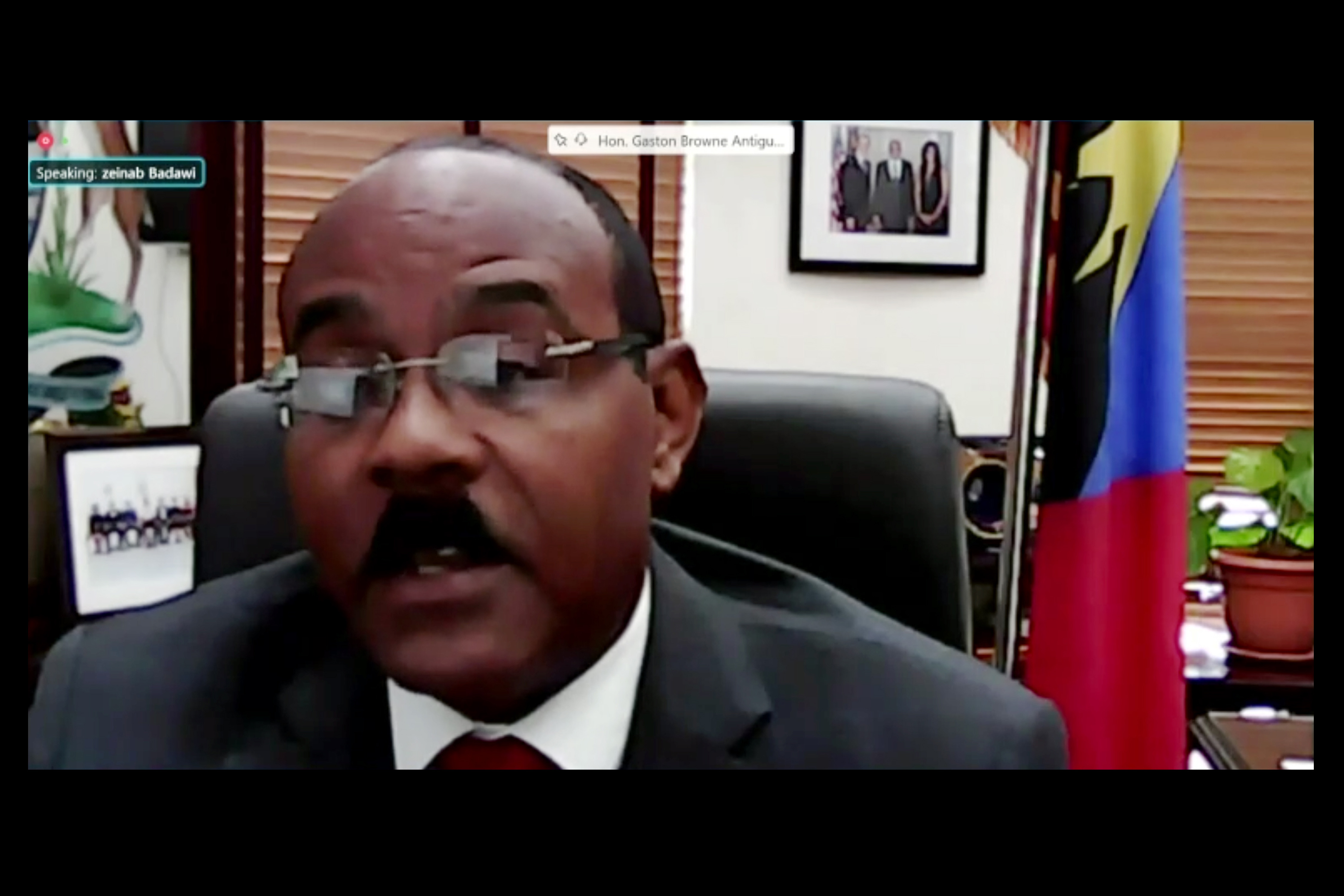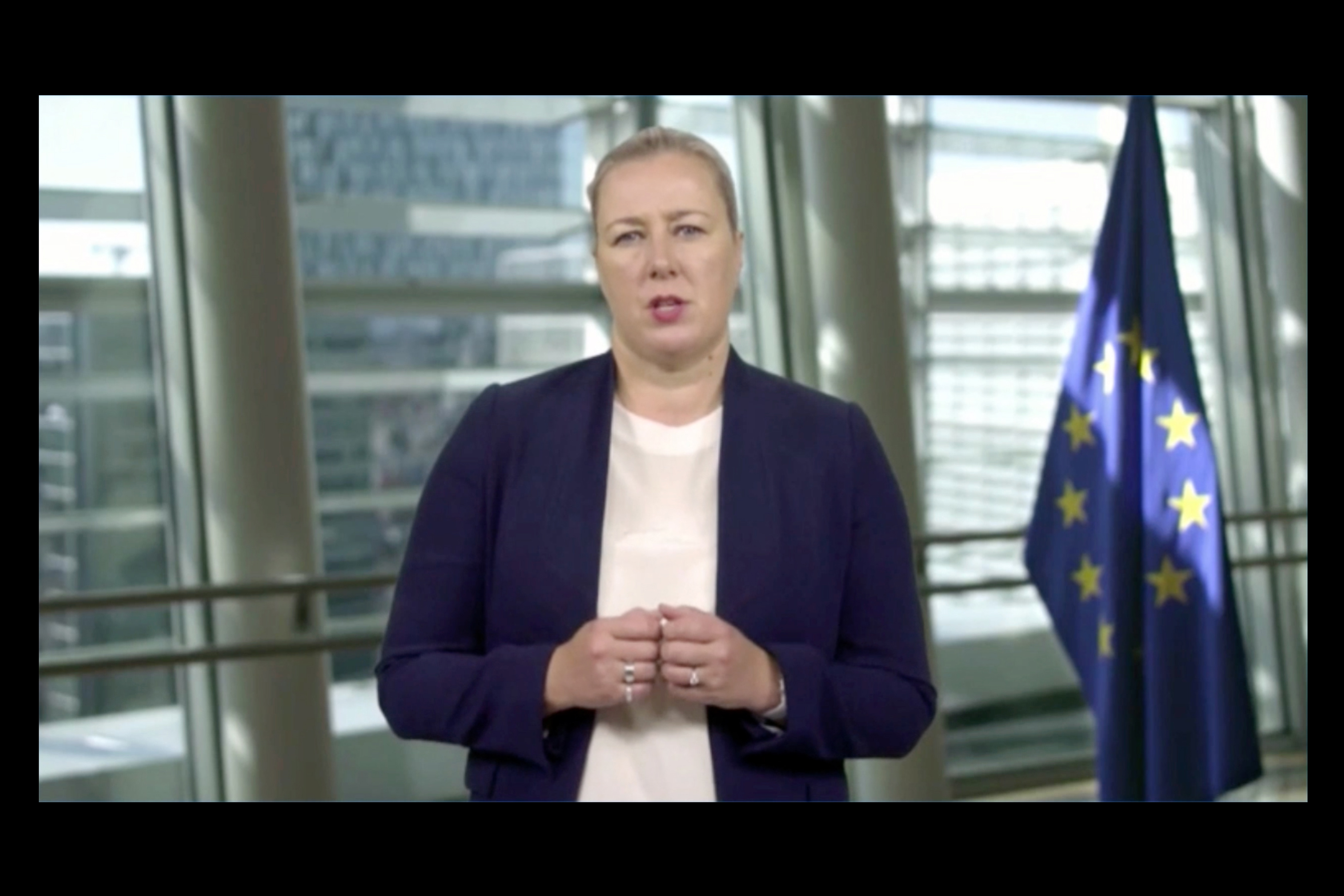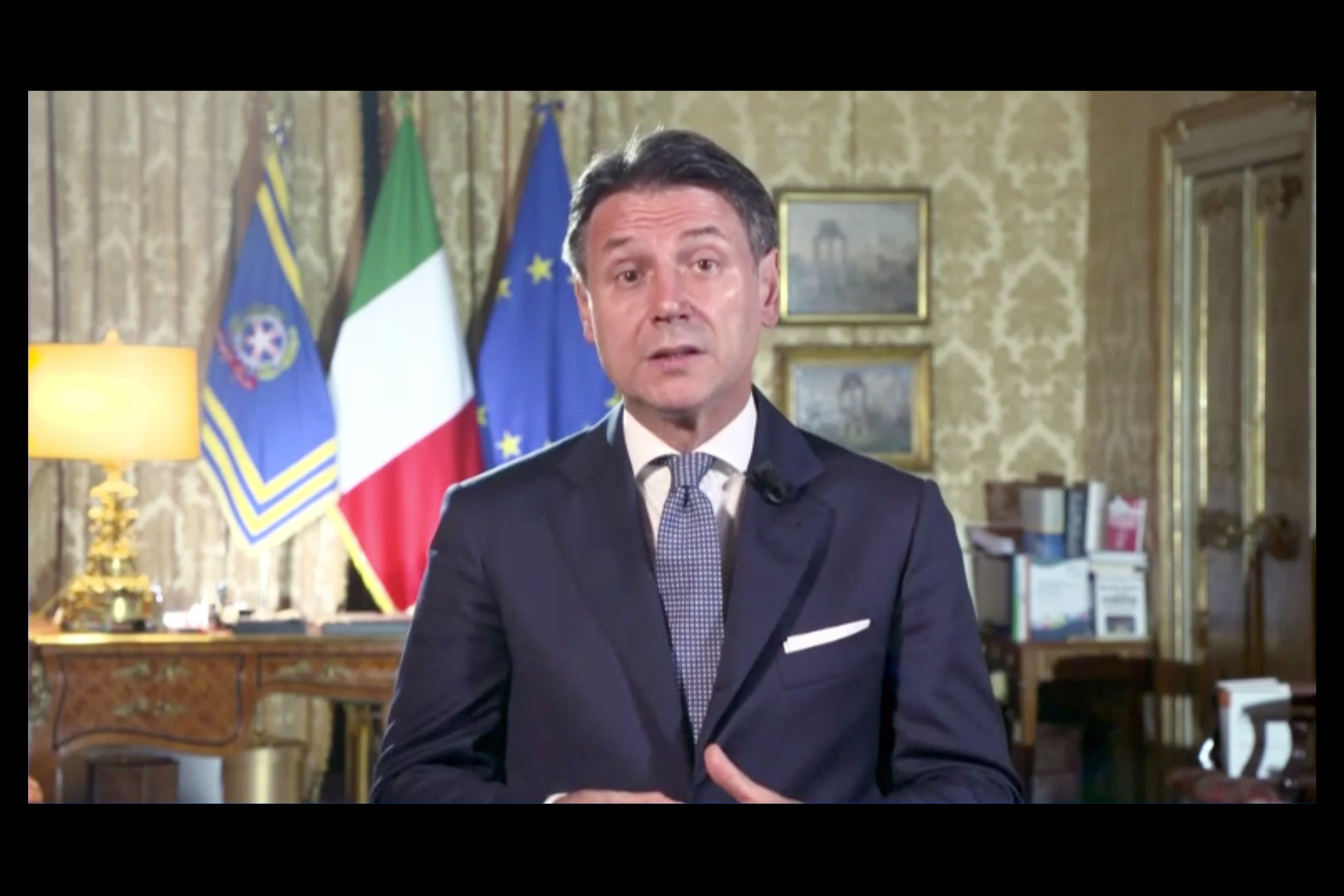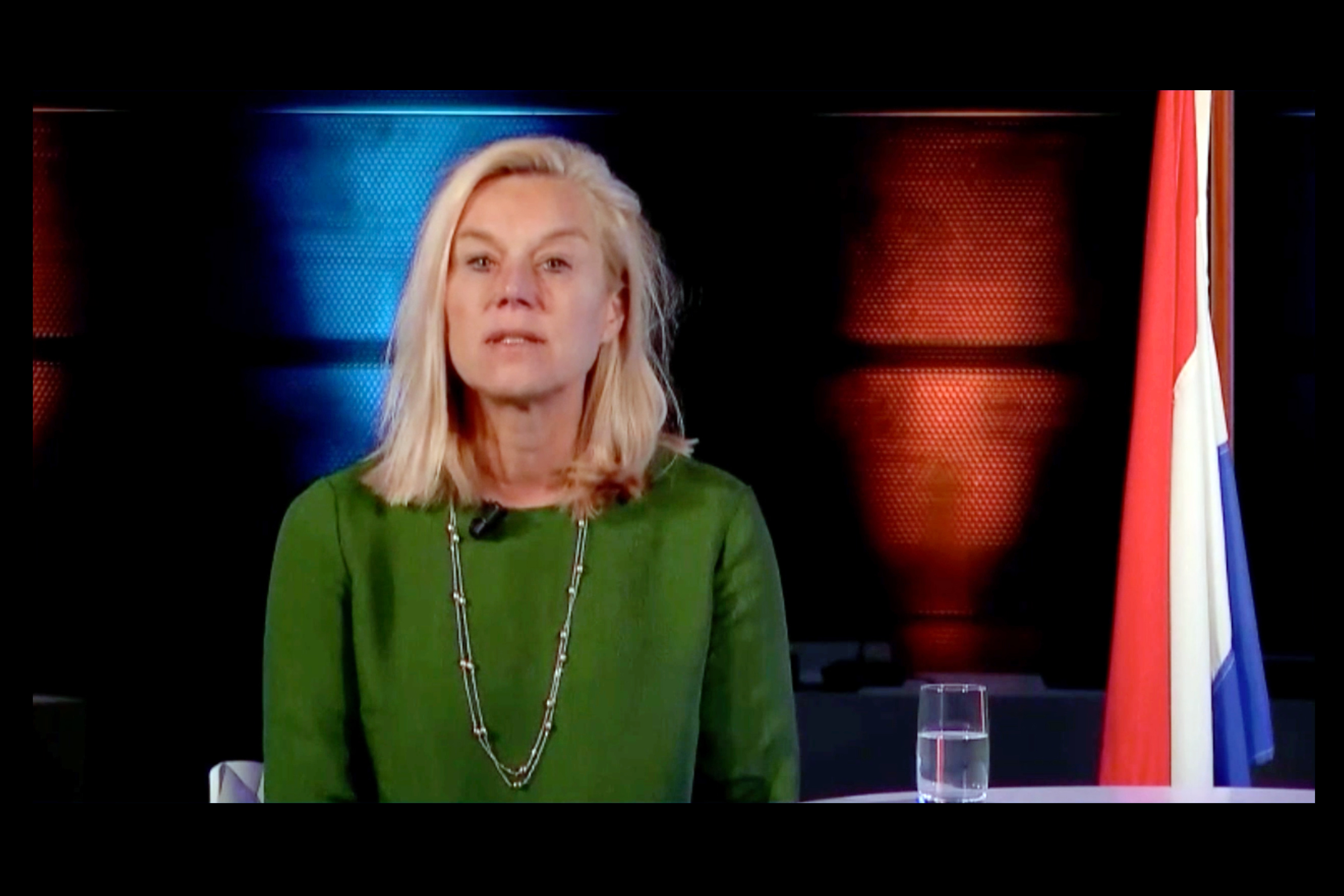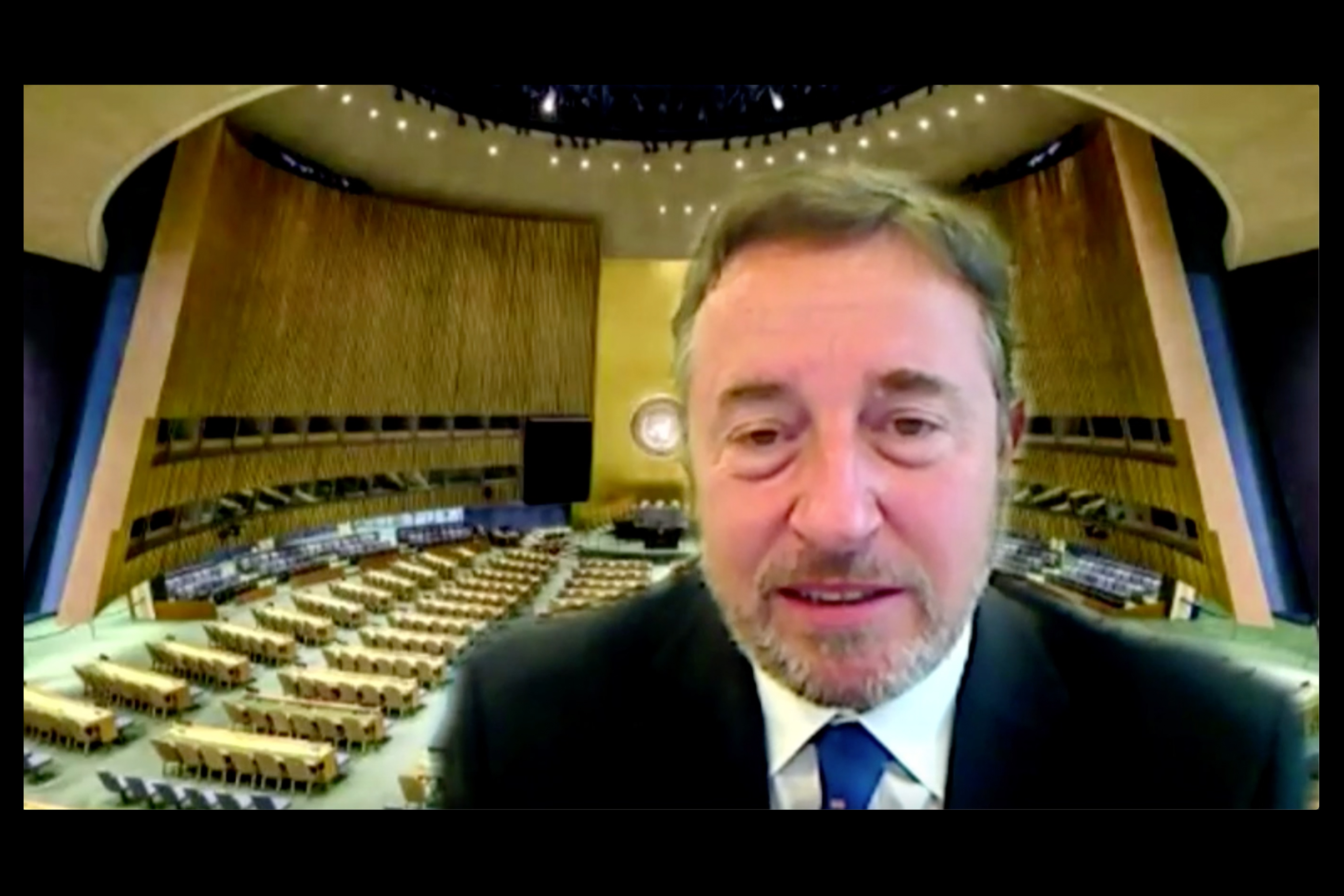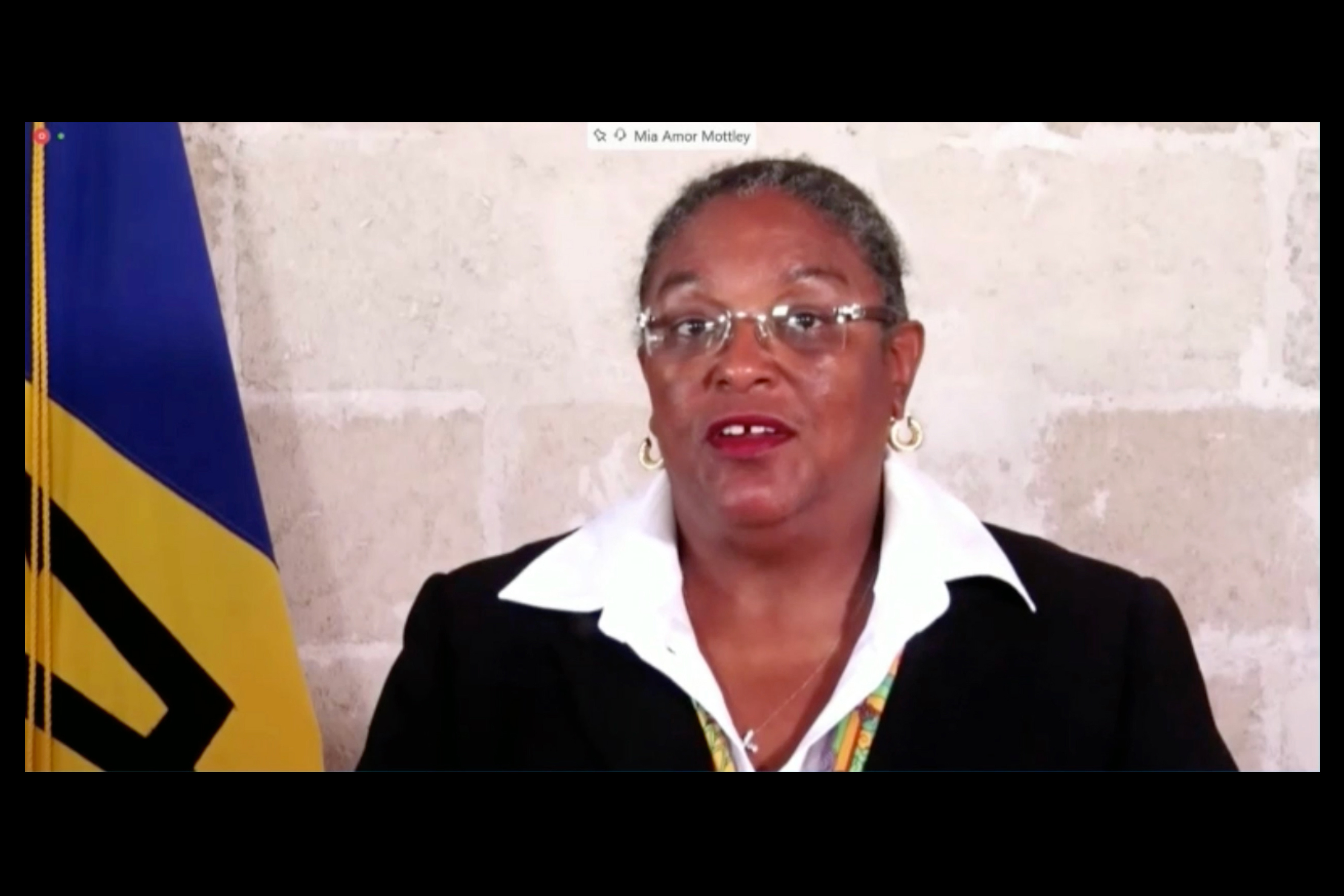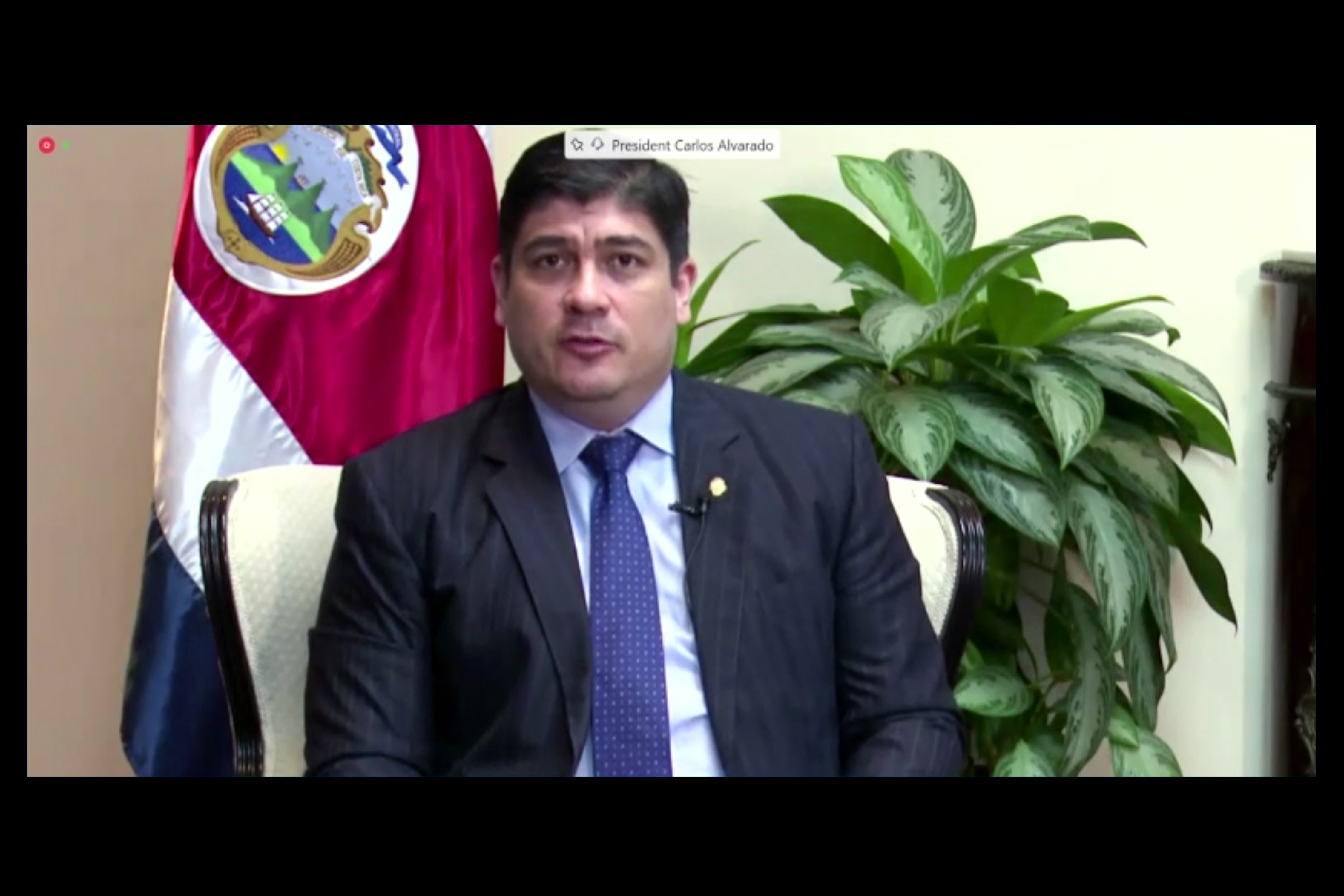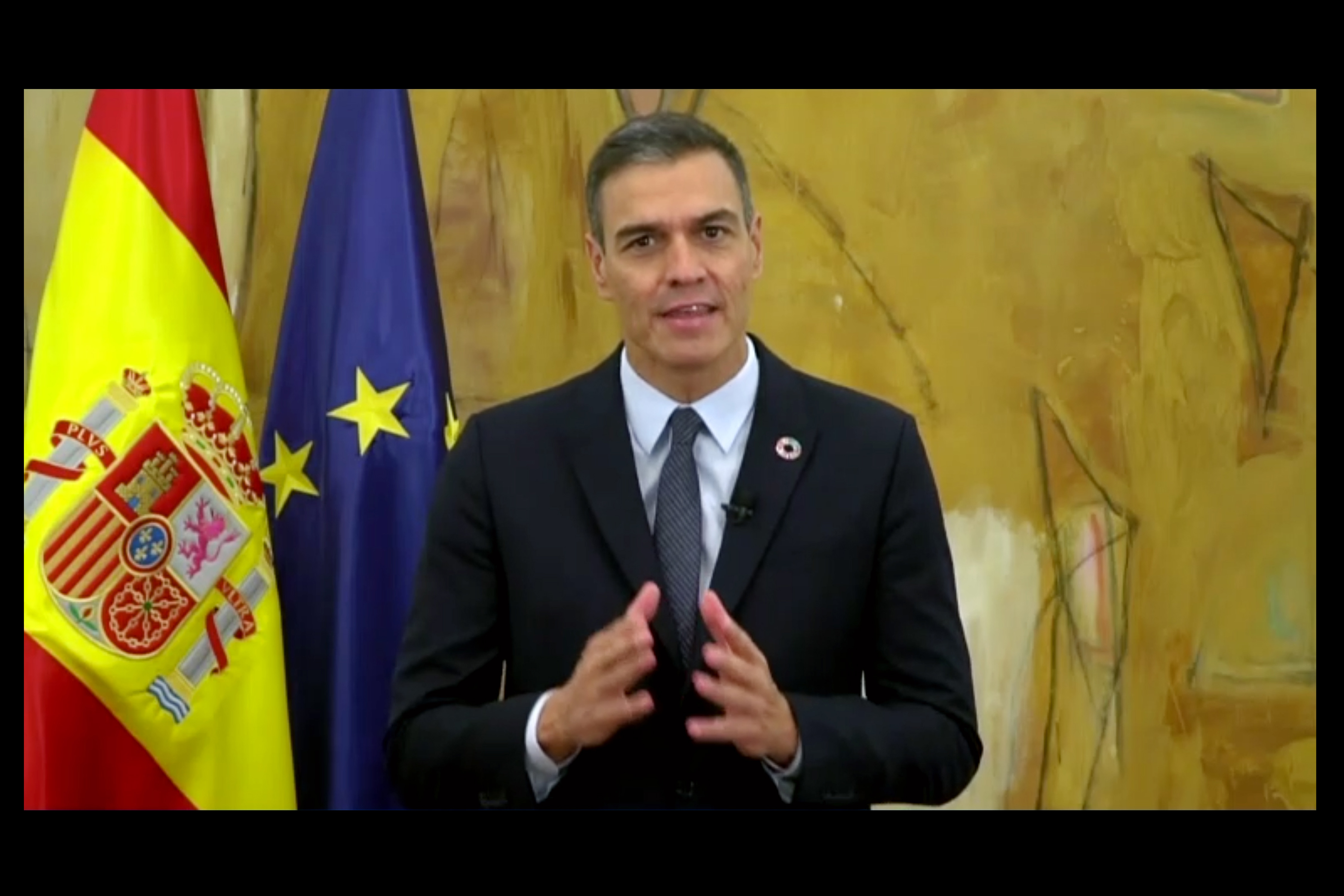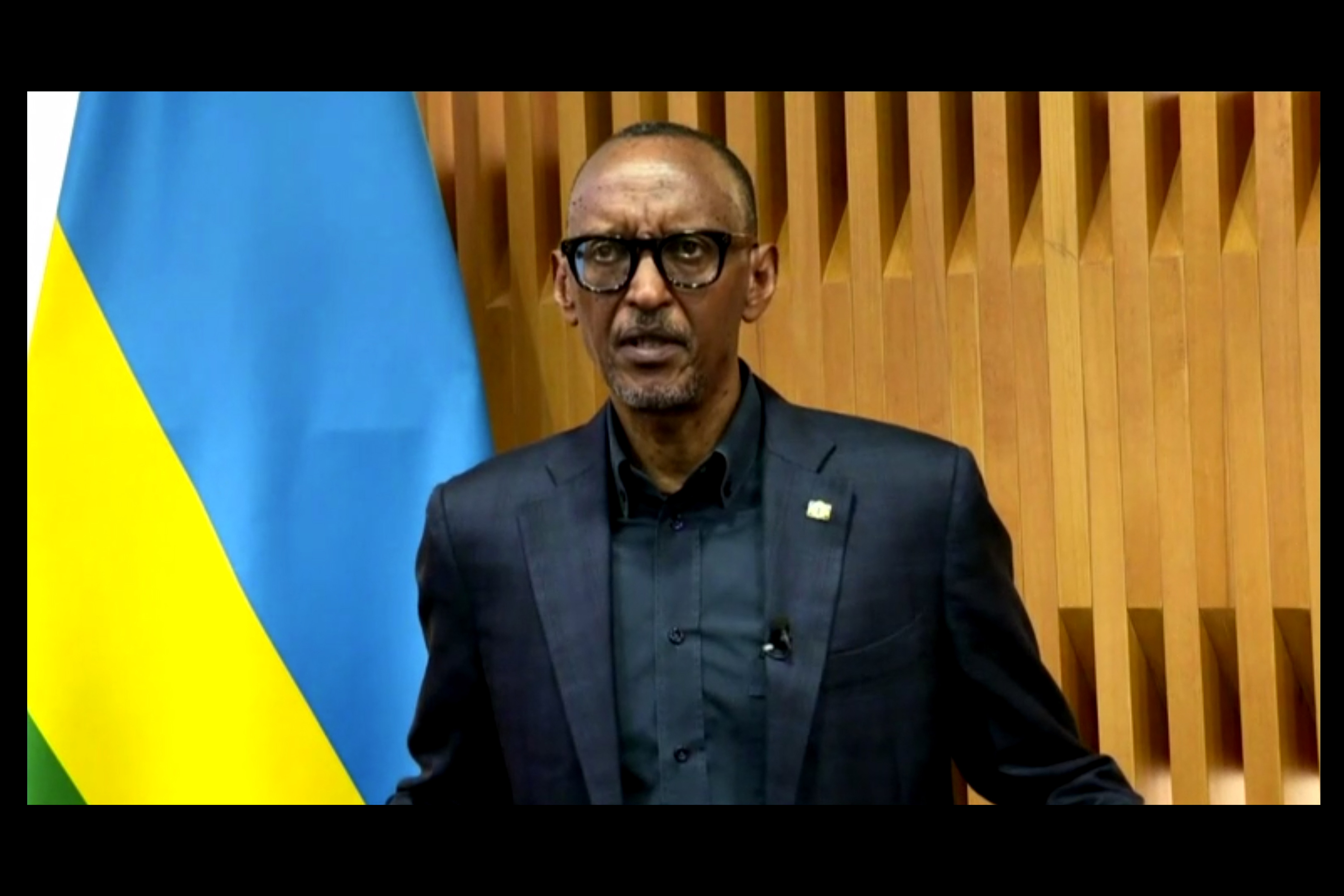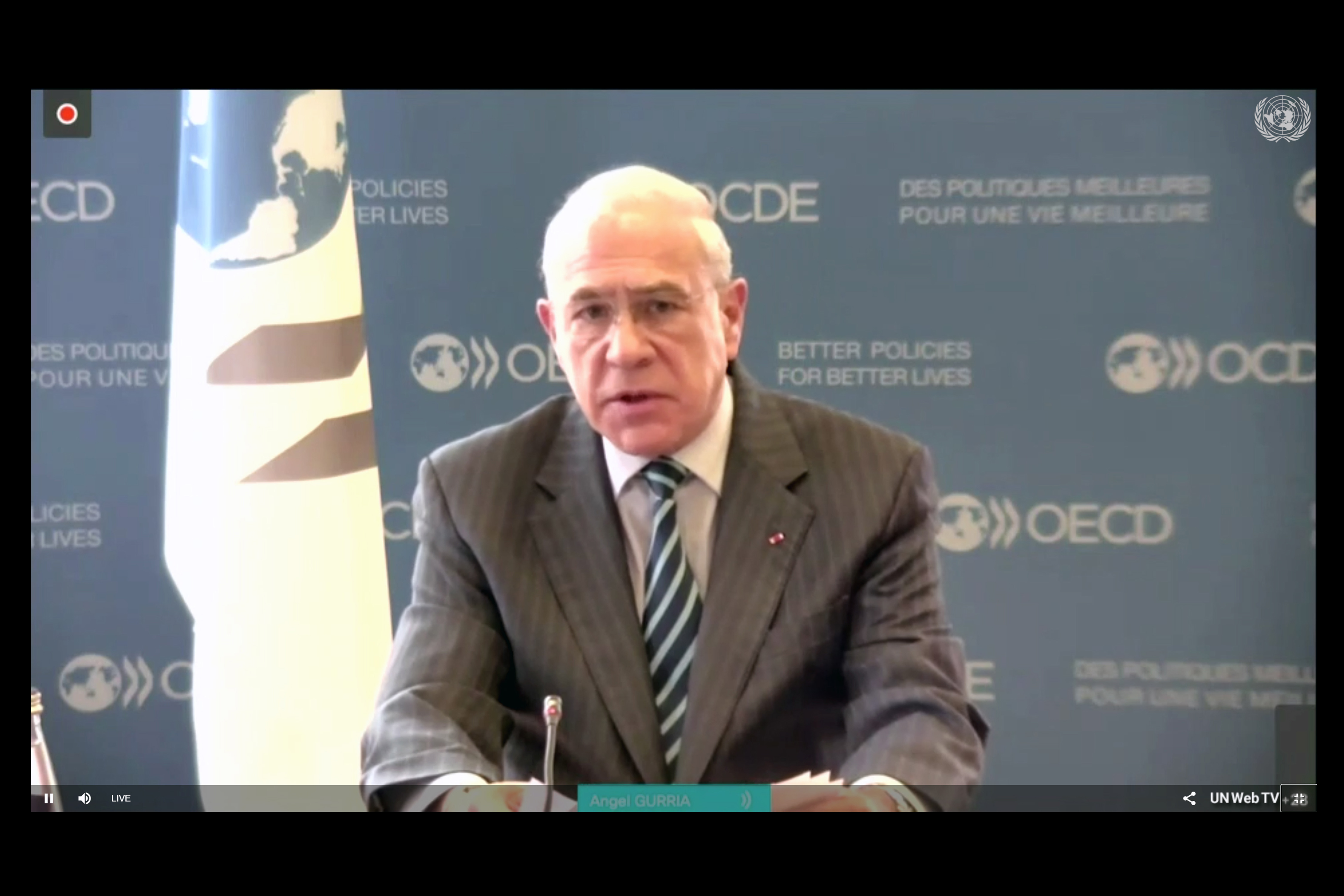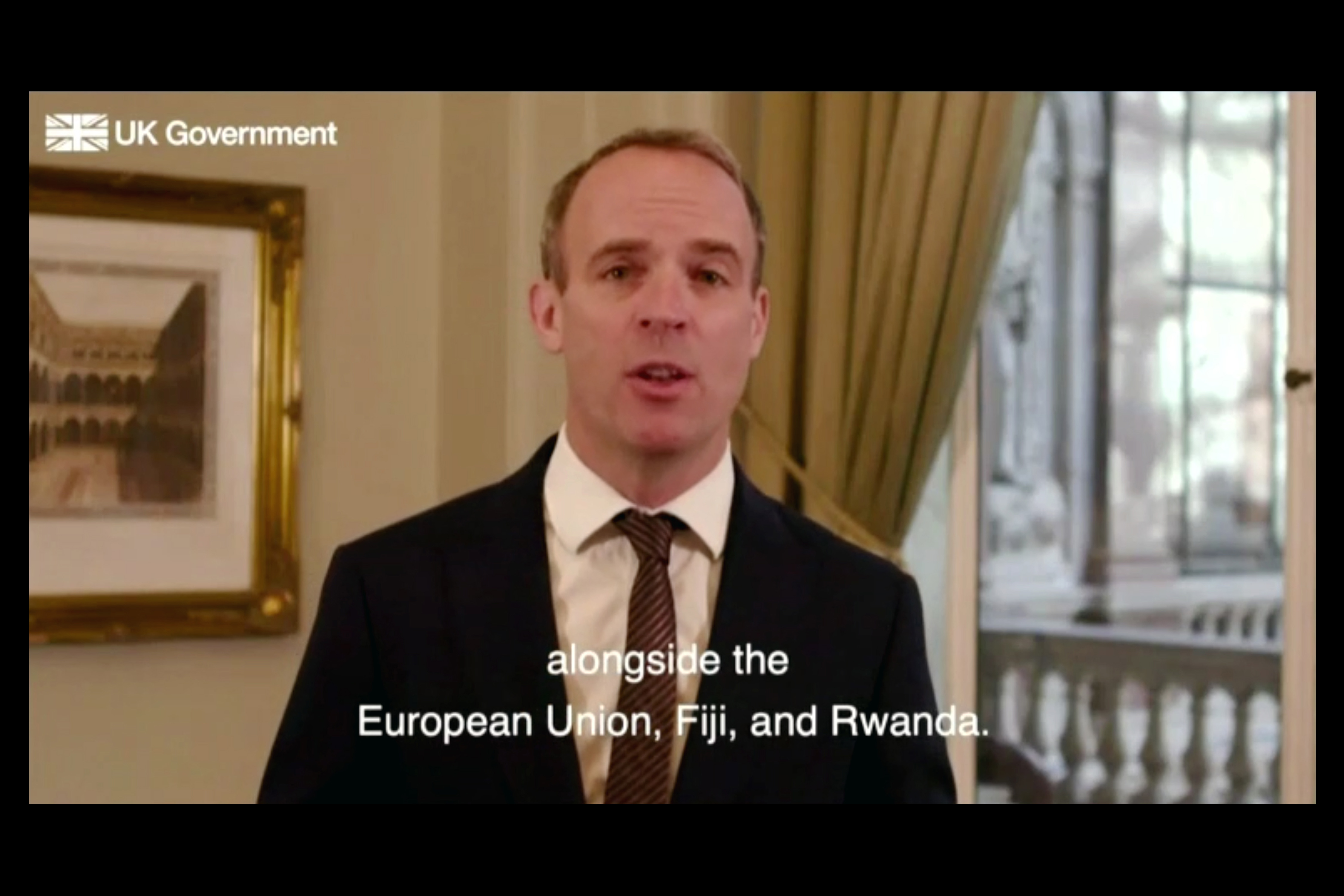Financing the 2030 Agenda for Sustainable Development in the Era of COVID-19 and Beyond
29 September 2020 | Virtual
Highlights for Tuesday, 29 September 2020
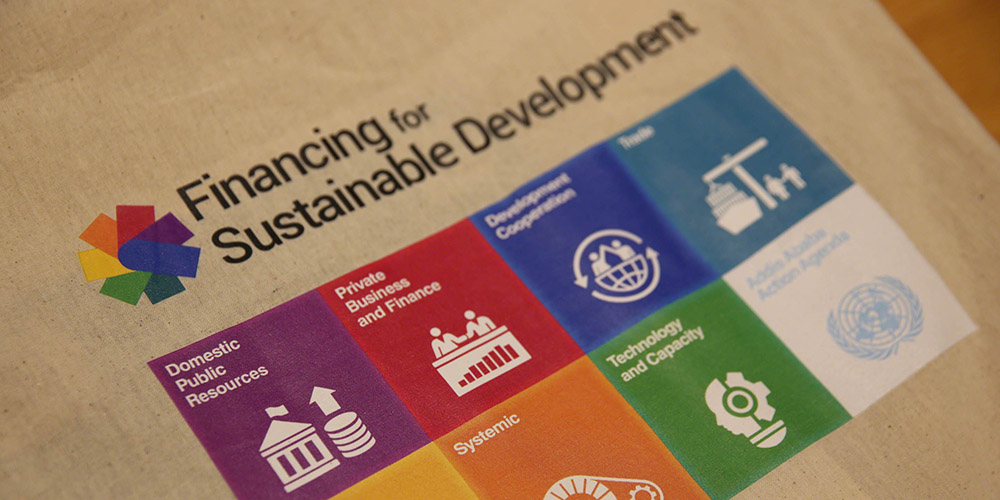
The high-level meeting is part of the Financing for Development in the Era of COVID-19 and Beyond initiative launched by the UN Secretary-General and the Prime Ministers of Canada and Jamaica in May 2020.
Together with the UN Secretary-General, the Prime Ministers of Canada and Jamaica convened a High-Level Event on 28 May 2020 to facilitate discussions with national leaders, international organizations and other stakeholders on developing financing solutions that will support countries in recovering from the COVID-19 pandemic and mitigate its negative impacts on development initiatives worldwide, particularly in relation to progress on the 2030 Agenda for Sustainable Development. Following the meeting, six discussion groups were convened to propose solutions in:
- external finance and remittances, jobs and inclusive growth;
- recovering better for sustainability;
- global liquidity and financial stability;
- debt vulnerability;
- private sector creditors engagement; and
- illicit financial flows.
Canada, Jamaica and the Secretary-General convened a follow-up meeting with financial ministers on 8 September 2020, during which a wide array of perspectives and priorities were distilled and incorporated into a menu of policy options developed by the six discussion groups. Interventions during the High-Level Event held on 29 September 2020 will be incorporated into these policy options.
Opening Segment
Stressing that challenges like COVID-19 can only be met through international cooperation, journalist and moderator Zeinab Badawi described the meeting as a major milestone in solidarity in the face of the devastation caused by the pandemic.
Looking back at events since the May 2020 High-Level Event, Justin Trudeau, Prime Minister of Canada, lamented that the pandemic has continued to upend economies. He explained the most promising ideas from this event would be included in International Monetary Fund (IMF) processes and Group of Seven and Twenty (G7 and G20) meetings, and that ministers would reconvene in December 2020 to discuss progress. He announced Canada will invest an additional USD 400 million in humanitarian and development funding to fight COVID-19 and remains committed to extending the G20 debt service suspension initiative.
Andrew Holness, Prime Minister of Jamaica, drew attention to developing countries’ challenges, including overburdened health systems and inadequate fiscal resources, and noted that women and the poor have been the primary victims amidst the pandemic. He underscored the need for global management of the recovery process and called for a global plan akin to the Marshall Plan. He also stressed the need for strengthened resilience and transitioning to green, sustainable and inclusive development.
UN Secretary-General António Guterres noted that, out of a total fiscal response of more than USD 1.5 trillion, only 2.5 % is accounted for by developing and emerging economies. Welcoming the debt service suspension initiative, he called for its extension to all developing and middle income countries that need it. He also called for total support of USD 100 billion to ensure equitable global access to a vaccine, and for greater support for development financing in Africa.
Delivering the IMF’s perspective, Kristalina Georgieva, Managing Director of the IMF, observed that in China and the advanced economies the situation is less bleak than in May 2020, thanks to governments’ synchronized fiscal stimulus action, but noted low-income economies remain more constrained. She said the IMF has provided nearly USD 100 billion to 81 countries to help them deal with the crisis. Georgieva identified as the “mandate for action”: sustaining support for people and businesses; focusing on high and growing debt levels; and “building forward better.”
Delivering the World Bank Group’s message, David Malpass, President of the World Bank Group, cautioned that 100 million people could fall into extreme poverty in 2020. He said that for many of the poorest, unsustainable levels of public debt have become an obstacle to development, and called on the UN to vocally support participation by all creditors in the debt service suspension initiative.
Describing the unprecedented challenges caused by the COVID-19 pandemic, Mark Lowcock, UN Under-Secretary-General for Humanitarian Affairs and Emergency Relief Coordinator, noted that extreme poverty will increase for the first time since the 1990s and the number of people facing starvation may double. He urged developed countries to act now, adding that a failure to take action is “an act of self-harm.” He called for protection of aid budgets and issuance of Special Drawing Rights devoted to poorest countries.
Outlining the consequences of COVID-19 on girls and women, Natalia Kanem, Executive Director of the UN Population Fund, noted that isolation and a lack of access to education will leave girls in “a merciless poverty trap.” She added that additional investments in health, education and development would save millions of lives and yield economic benefits worth more than 10 times their cost, giving opportunities to girls.
On the Financing for Development efforts, Amina J. Mohammed, UN Deputy Secretary-General, noted that recovery will not happen without Africa and called for financing at scale on the continent. She noted that the Addis Ababa Action Agenda will lay the groundwork to implement the financing options outlined by the discussion groups.
Images from the Session
Videos from the Session
High-level Segment
Moderator Zeinab Badawi introduced the high-level segment, asking speakers to focus on what is needed to address “the worst economic crisis in the last century.”
On financing for regions, South Africa, for the African Union, called for USD 100 billion in immediate emergency financing for Africa to ensure that no country is left behind. Malawi, for the Least Developed Countries (LDCs), called for a stimulus package and a new debt relief initiative specifically targeting LDCs. Nepal, on behalf of Landlocked LDCs (LLDCs) outlined eight further actions needed for LLDCs, including maintaining current development assistance and prioritizing the special needs of LLDCs. Noting that Small Island Developing States (SIDS) are experiencing a contraction 30 times worse compared to the global average, Antigua and Barbuda, for the Alliance of Small Island States, called for a SIDS compact that would support resilience and development. With Barbados, the Bahamas and Trinidad and Tobago, he said this requires agreeing to the multidimensional vulnerability index to replace the “antiquated income measures.”
Heads of state and government, other government leaders, and representatives of international organizations shared updates on national efforts to tackle the COVID-19 crisis and recover in the longer term, and their priorities for financing development.
On global coordination, Italy, the upcoming Chair of the G20, called for a global, coordinated, multidimensional response to the pandemic and said the Italian presidency’s agenda will be structured around “people, planet and prosperity,” including an emphasis on digital revolution and a summit on global health. Spain proposed hosting a special High-level Political Forum in 2021 to renew countries’ commitment to the 2030 Agenda for Sustainable Development. Azerbaijan drew attention to an upcoming special UN General Assembly session on COVID-19 it had proposed as the Chair of the Non-Aligned Movement. Kenya called for new models of cooperation around health systems and sustainable recovery. UN Conference on Trade and Development (UNCTAD), called for coordinated action for trade and investment promotion.
On multilateral financial responses, Costa Rica called for a Marshall Plan-type global initiative, entitled FACE, for “fund to alleviate COVID-19 economics,” and called for wealthier economies to dedicate a part of their GDP to support poorer countries. Venezuela called for a public procurement fund to ensure access to food and health care products, particularly for countries facing economic embargoes and blockades. The Maldives urged establishing a global trust fund to restart air travel for tourism-dependent countries. Stating that global “superpowers are undermining multilateralism and international cooperation,” Cambodia suggested the timeline for the SDGs might need to be revised.
On other financial responses, Japan highlighted its COVID-19 crisis response emergency support loan scheme. The Republic of Korea said it will increase its humanitarian aid for COVID-19 prevention and official development assistance for green growth and digital innovation. France announced an increase in its ODA to 0.55% of GNI by 2022.
On protecting the poor and vulnerable, Rwanda called for adequate social protection and action towards inclusion and fairness. Guyana suggested addressing inequalities as an integral part of the pandemic response, including through a new social contract and global deal to transfer financial, intellectual and technological resources. Madagascar underscored international solidarity. Chad urged support to food and nutritional security programmes. Bangladesh called for innovations to close the digital divide and more private finance to developing countries.
On COVID-19 vaccines and related support, Japan and others called for treating vaccines as a global public good. Ecuador and others called for funding for resilient health care and universal health coverage. Equatorial Guinea proposed establishing a “universal global health” system with the support of international financial institutions.
On financial instruments and sources of finance, many, including Palestine, lamented diminishing international aid flows. Cuba called for continued commitments to official development assistance. Egypt supported diversifying financing sources, including through green bonds, sovereign wealth funds and debt for investment swaps. The UN Economic and Social Council, Bosnia and Herzegovina, and Norway, among others, called for the immediate end to illegal financial flows. Ghana, with Sierra Leone and Nigeria, called for stopping illicit financial outflows from Africa, noting these amount to losses of at least USD 50 billion per year. Nigeria stressed the need for collaboration by the main destinations of these flows, including secrecy jurisdictions. Japan and UNCTAD supported promoting environmental, social and governance (ESG) investing. Georgia said it is hosting an online forum with the International Organization for Migration to mobilize diaspora investments. France urged increased transparency in all forms of finance. Mozambique and the Organisation for Economic Co-operation and Development called for fairer and more transparent international tax solutions that address bottlenecks.
On debt, Egypt called for debt alleviation efforts, especially for Africa, and for ensuring access to concessional lending for states that need it to allow them to engage in international trade. Spain, Zimbabwe, Sierra Leone, Pakistan and many others, supported extending the G20’s debt service suspension initiative through the end of 2021. Spain also called for debt swaps for climate action and human development for both public and private entities. The UN Economic Commission for Africa (ECA), called for a facility at the IMF for debt restructuring. UNCTAD proposed an independent global sovereign debt authority. Citing the differences in bond yields between Kenya and the US, the UN Development Programme lamented, “it is expensive to be poor during a pandemic.” He called for a new system that moves away from examining fiscal space in terms of GDP thresholds and invests in a retooling of economies towards a green transition.
On the role of the private sector, Spain recommended countries harmonize standards by 2025 to ensure all businesses and investment funds contribute positively to the SDGs. ECA highlighted the private sector’s role in increasing global liquidity, and supporting recovery, rebuilding and resilience, and eSwatini emphasized the role of the private sector in reigniting the economy. The UN Department of Economic and Social Affairs noted continued efforts by the UN to integrate capacity development on tax systems, and encouraged the private sector to work towards mandatory reporting.
On the role of climate change in COVID-19 recovery, the UK and the Netherlands called for a green recovery that aligns with the Paris Agreement. The European Commissioner for International Partnerships called for a price on carbon and innovative forms of sustainable finance such as green bonds. Namibia called for "blue green bonds" and carbon credits in order for local development to flourish. Mark Carney, UN Special Envoy on Climate Action and Finance, underscored the need for governments to align businesses with climate goals through predictable and credible climate policy and creating a sustainable financial system. Ethiopia called for green and resilient measures to accelerate the transition to renewable energy, and Fiji urged economic stimulus spending to “look forward” to “blue-green development,” and digital and women’s equality, rather than "look backward” to fossil fuels.
Images from the Session
Videos from the Session
Closing Remarks
On behalf of the Prime Minister of Jamaica, Kamina Johnson-Smith, Minister of Foreign Affairs and Foreign Trade of Jamaica, thanked all stakeholders for their valuable contributions to COVID-19 recovery, which she described as “critical to livelihoods and lives.” She applauded gender-sensitive approaches noting the importance of including women, and stressed that as work and education become increasingly dependent on digital connectivity, the digital divide must be addressed. Finally, she voiced support for the proposals on a “FACE” fund and a resilience fund.
Bob Rae, Ambassador and Permanent Representative of Canada to the UN, reiterated Canada’s commitment as co-lead of the Initiative on Financing for Development with Jamaica, and to work with financial institutions to find adequate, bold and creative responses to the COVID-19 pandemic. He suggested as a conclusion that COVID-19 is more of a “revealer” than a leveler, exposing gaps, inequalities and challenges within developing countries.
After thanking the co-leads, heads of state and government, and other participants, Amina J. Mohammed, UN Deputy Secretary-General, explained that the day's discussions reflected the building blocks of recovery, when aligned with the 2030 Agenda and Paris Agreement. She applauded efforts by developed countries to date to support developing countries, but added that “we need to reorient the global financial system to save the common human fabric that connects us all.” Closing the event, she suggested that the COVID-19 pandemic has demonstrated that “we all suffer when we don’t work together.”
Images from the Session
Event Resource
IISD/ENB Meeting Coverage
- SDG Moment, 18 September 2020, Virtual
- 75th Anniversary of the UN, 21 September 2020, Virtual
- Biodiversity Summit, 30 September 2020, Virtual
- 2020 High-Level Political Forum on Sustainable Development (HLPF 2020), 7-16 July 2020
- Coverage of Selected Side Events at HLPF 2020, 7-16 July 2020
- UN Summits Week 2019, 23-27 September 2019, UN Headquarters, New York
- Coverage of Selected Side Events at the UN Summits Week 2019, 22-27 September 2019, New York
IISD Resources
- Subscription Page for IISD Reporting Services Peer-to-Peer Mailing Lists (including BIODIVERSITY-L,SDG, CLIMATE-L, FORESTS-L, OCEANS-L, and Regional Updates)
- SDG Knowledge Hub - An Online Resource Center for News and Commentary Regarding the Implementation of the United Nations’ 2030 Agenda for Sustainable Development, including all 17 Sustainable Development Goals (SDGs)
- Linkages Update - International Environment and Sustainable Development News

